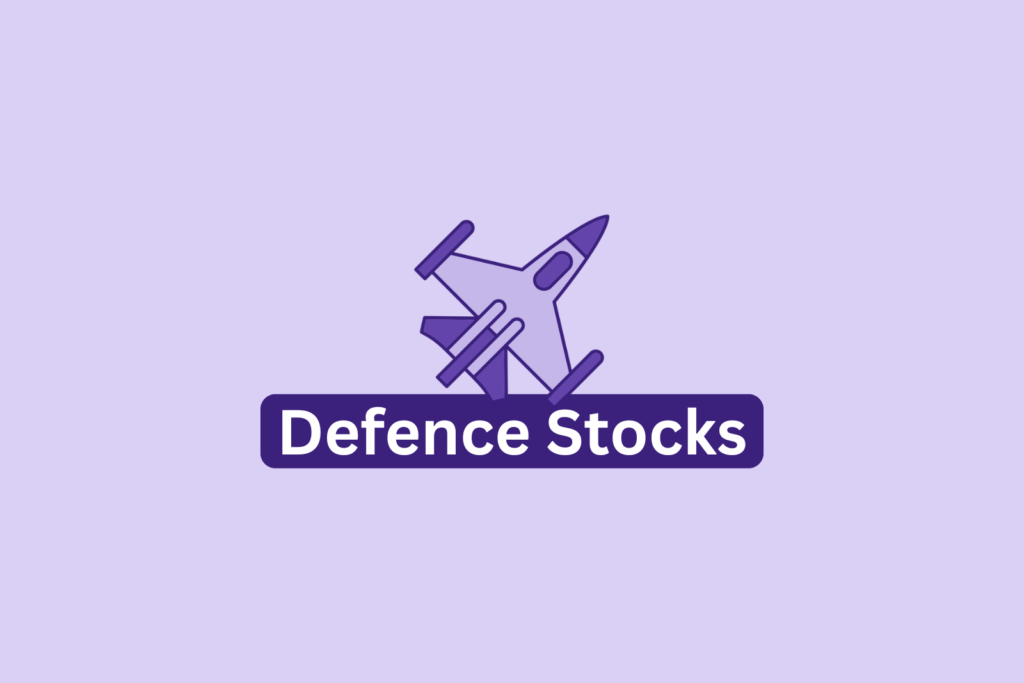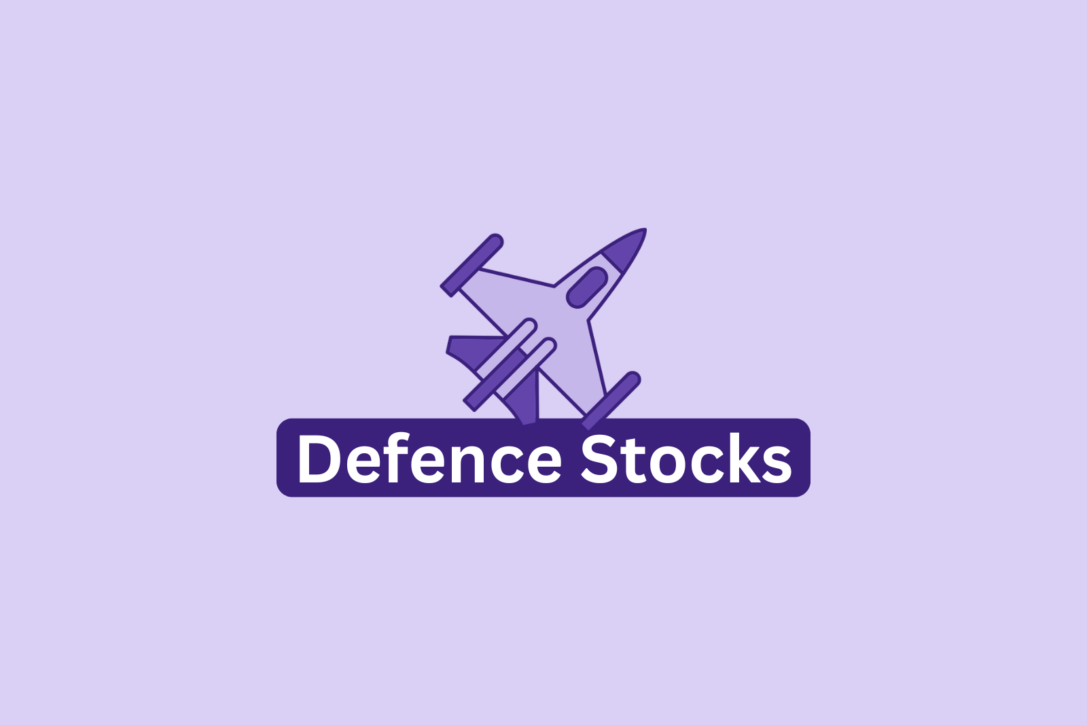
The Indian defence sector is experiencing a period of phenomenal growth, fueled by modernization initiatives, rising geopolitical tensions, and an increasing focus on self-reliance. This surge in activity presents a lucrative opportunity for investors seeking to capitalize on this strategic market segment. But with numerous defence companies vying for a piece of the pie, identifying the best defence stocks in India can be a daunting task.
This comprehensive guide will equip you with the knowledge to navigate the Indian defence sector and make informed investment decisions. We’ll delve into the factors that influence a company’s success, explore the top contenders, and provide valuable insights to help you build a robust defence portfolio.
Why Invest in Defence Sector Stocks in India?
Several compelling reasons make Indian defence stocks an attractive proposition for investors:
- Government Thrust on Modernization: The Indian government has embarked on an ambitious military modernization program, aiming to replace ageing equipment and bolster its defence capabilities. This translates into significant investments in new technologies, weapons systems, and infrastructure, creating a windfall for domestic defence companies.
- Rising Defence Budget: To support this modernization drive, the Indian defence budget has been steadily increasing year-on-year. This consistent budgetary allocation ensures a predictable flow of contracts and revenue for defence companies.
- Focus on Self-reliance: India is actively pursuing the goal of “Atmanirbhar Bharat” (Self-reliant India) in the defence sector. This policy prioritizes domestic production over imports, creating a fertile ground for indigenous defence companies to flourish.
- Geopolitical Landscape: The current geopolitical climate, with ongoing regional tensions, underscores the importance of a robust national defence. This environment translates into increased demand for defence equipment and services, benefiting the sector.
Key Factors to Consider When Choosing Defence Sector Stocks
Before diving headfirst into the world of defence stocks, consider these crucial factors to make well-informed choices:
- Company Fundamentals: Analyze the company’s financial health, including profitability, debt levels, and growth trajectory. Look for companies with a strong track record of order execution and a healthy balance sheet.
- Product Portfolio: Assess the company’s product diversification and its alignment with the government’s modernization priorities. Companies with expertise in cutting-edge technologies like drones, missile systems, and advanced electronics stand to benefit the most.
- Order Book Size: A robust order book filled with government contracts indicates future revenue streams and stability. Look for companies with a healthy backlog of orders and a steady pipeline of new contracts.
- Management Expertise: A competent management team with experience in the defence sector is crucial for navigating the complexities of the industry. Evaluate the leadership’s track record of securing contracts, managing costs, and driving innovation.
- Government Policies: Stay updated on government policies and initiatives related to the defence sector. These policies can significantly impact the fortunes of defence companies.
Top Defence Companies and Potential Best Defence Stocks in India (2024)
The Indian defence sector boasts a diverse range of companies, each with its unique strengths and areas of specialization. Here’s a closer look at some of the leading contenders and their potential as investment options:
- Hindustan Aeronautics Limited (HAL): A behemoth in the Indian aerospace and defence industry, HAL is a government-owned enterprise with a proven track record. It manufactures combat aircraft, helicopters, and other key defence platforms, making it a strong contender in any defence portfolio.
- Bharat Electronics Limited (BEL): Another PSU (Public Sector Undertaking), BEL is a leader in manufacturing radars, communication equipment, and electronic warfare systems. Its strong association with the Indian military and diverse product portfolio make it a compelling investment option.
- Bharat Dynamics Limited (BDL): This PSU specializes in the development and production of anti-tank missiles, torpedoes, and other guided weapons. BDL’s focus on niche, high-demand segments makes it a potential growth driver within the defence sector.
Additional Promising Companies:
- Mazagon Dock Shipbuilders Limited (MDL): A leading shipyard constructing warships and submarines for the Indian Navy.
- Cochin Shipyard Limited (CSL): Another prominent shipyard specializing in building commercial and defence vessels.
- Data Patterns (India) Limited: A private sector company focusing on providing critical communication equipment and electronic warfare solutions to the defence forces.
- Paras Defence and Space Technologies Ltd.: A manufacturer of landmine protectors, bulletproof vests, and other defence equipment.
Disclaimer: This is not financial advice. Please consult with a qualified financial advisor before making any investment decisions.

Beyond the Big Names: Exploring Mid-Cap and Small-Cap Defence Stocks
While large-cap PSUs like HAL and BEL offer stability, mid-cap and small-cap companies can present exciting growth opportunities. These companies are often more nimble and adaptable, allowing them to capitalize on emerging trends and technologies in the defence sector. However, due diligence is crucial when considering these stocks, as they may carry higher risks associated with financial stability and market volatility.
Here are some factors to consider when evaluating mid-cap and small-cap defence stocks:
- Growth Potential: Look for companies with a strong focus on research and development (R&D), investing in cutting-edge technologies that align with the government’s modernization priorities.
- Niche Expertise: Companies specializing in niche segments within the defence sector, like unmanned aerial vehicles (UAVs) or cyber security solutions, can potentially capture a significant market share.
- Government Contracts: While large contracts with the government remain a key driver, some mid-cap and small-cap companies may benefit from sub-contracting opportunities with established players.
Potential Mid-Cap and Small-Cap Defence Stocks (2024):
Disclaimer: Again, this is not financial advice, and thorough research is recommended before investing in any stock.
- ideaForge Technology Ltd.: Specializes in developing UAVs (drones) for military and civilian applications.
- Paras Defence and Space Technologies Ltd.: Manufactures a range of land and personal defence equipment, including bulletproof vests and mine-protected vehicles.
- Taneja Aerospace and Aviation Ltd.: Involved in manufacturing critical aircraft components and providing maintenance, repair, and overhaul (MRO) services.
- High Energy Batteries (India) Ltd.: Focuses on developing and manufacturing advanced batteries for defence applications, including electric vehicles and missile systems.
- Sika Interplant Systems Ltd.: Provides specialized sealing and vibration damping solutions for defence platforms.
Important Note: This list is not exhaustive, and new players are constantly emerging in the defence sector. Conducting your own research and staying updated on industry trends is crucial for identifying promising mid-cap and small-cap investment opportunities.
Risks Associated with Investing in Defence Sector Stocks
Despite the promising outlook, investing in defence stocks carries inherent risks:
- Cyclicality: The defence sector can be cyclical, with spending patterns fluctuating based on geopolitical tensions and government priorities. This can lead to periods of volatility in stock prices.
- Government Dependence: Defence companies rely heavily on government contracts, making them susceptible to changes in procurement policies and budget allocations.
- Technological Disruption: The rapid pace of technological advancement can quickly render existing defence equipment obsolete. Companies that fail to adapt to these changes may struggle to compete.
- Geopolitical Uncertainty: Global events and regional conflicts can significantly impact the defence sector, leading to unforeseen risks.
Strategies for Building a Strong Defence Sector Portfolio
To mitigate these risks and build a robust defence sector portfolio, consider these strategies:
- Diversification: Don’t put all your eggs in one basket. Diversify your portfolio across companies of different sizes, specializations, and business models.
- Long-Term Perspective: Investing in defence stocks requires a long-term outlook. Focus on companies with a strong track record and a sustainable growth trajectory.
- Financial Risk Management: Employ sound financial risk management practices, such as setting stop-loss orders and maintaining a diversified portfolio across different sectors.
- Stay Informed: Keep yourself updated on the latest developments in the defence sector, including government policies, technological advancements, and geopolitical events.
Conclusion
The Indian defence sector is on an upswing, presenting compelling opportunities for investors seeking long-term growth. By understanding the key factors influencing the sector, conducting thorough research, and employing sound investment strategies, you can make informed decisions and build a robust defence sector portfolio that aligns with your financial goals.
Remember: This blog is for informational purposes only and should not be considered financial advice. Always consult with a qualified financial advisor before making any investment decisions.







